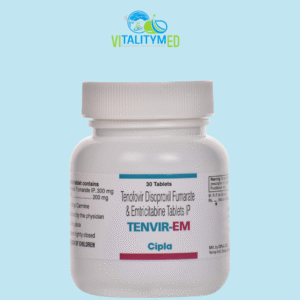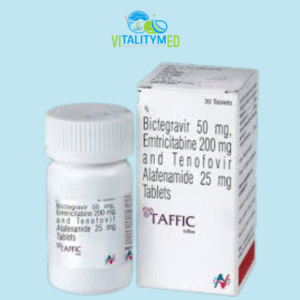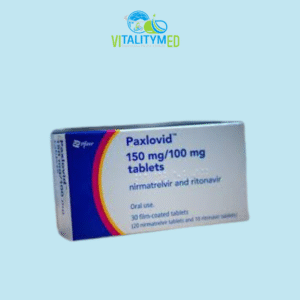A Bec 300 mg contains Abacavir, a powerful antiretroviral medicine that belongs to the Nucleoside Reverse Transcriptase Inhibitor (NRTI) class. It is primarily used in the management of HIV-1 infection in combination with other antiretroviral agents. Abacavir works by reducing the viral load in the body, thereby improving immune function and lowering the risk of HIV-related complications. Manufactured in tablet form, each unit contains 300 mg of Abacavir sulfate.
Abacavir is not a cure for HIV/AIDS, but consistent use greatly enhances quality of life and reduces disease progression.
Mechanism of Action
Abacavir is a nucleoside analogue that mimics the natural building blocks of DNA. After it enters the body, it is metabolised into its active form, carbovir triphosphate, which competes with deoxyguanosine triphosphate for incorporation into viral DNA by reverse transcriptase—an essential enzyme for HIV replication.
Once incorporated, it causes premature termination of the viral DNA chain, effectively halting further replication of the virus. Over time, this leads to a reduction in viral load, allowing the immune system to recover and function more effectively.
Uses / Indications
A Bec 300 mg (Abacavir) is indicated for:
-
Treatment of HIV-1 infection in adults, adolescents, and children (usually in combination with other antiretroviral medications).
-
Prevention of mother-to-child transmission of HIV (as part of a combination regimen).
Note: Abacavir is not used alone due to the risk of drug resistance. It is commonly prescribed as part of Highly Active Antiretroviral Therapy (HAART).
Adverse Effects
While generally well-tolerated, Abacavir may cause some adverse effects—some mild, others serious.
Common Side Effects:
-
Headache
-
Nausea or vomiting
-
Fatigue
-
Diarrhoea
-
Fever
Serious Side Effects:
-
Hypersensitivity Reaction (HSR): A potentially life-threatening reaction that may include fever, rash, gastrointestinal discomfort, and respiratory issues. Genetic screening for HLA-B*5701 allele is strongly recommended prior to therapy.
-
Lactic Acidosis and Hepatomegaly with steatosis (rare but potentially fatal)
-
Liver function abnormalities (especially in patients with hepatitis co-infection)







